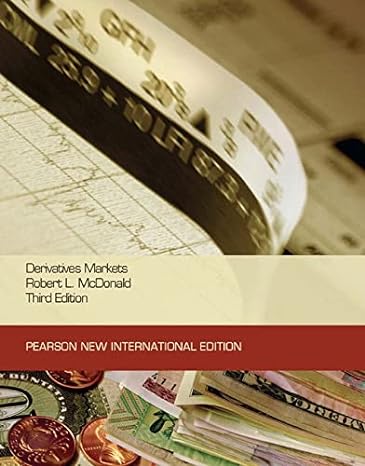3. Let S = ($100), K = ($120), = 30%, r = 0.08, and =...
Question:
3. Let S = \($100\), K = \($120\), σ = 30%, r = 0.08, and δ = 0.
a. Compute the Black-Scholes call price for 1 year to maturity and for a variety of very long times to maturity. What happens to the option price as T →∞?
b. Set δ = 0.001. Repeat (a). Now what happens to the option price? What accounts for the difference?
Fantastic news! We've Found the answer you've been seeking!
Step by Step Answer:
Related Book For 

Derivatives Markets Pearson New International Edition
ISBN: 978-1292021256
3rd Edition
Authors: Robert L. Mcdonald
Question Posted:





